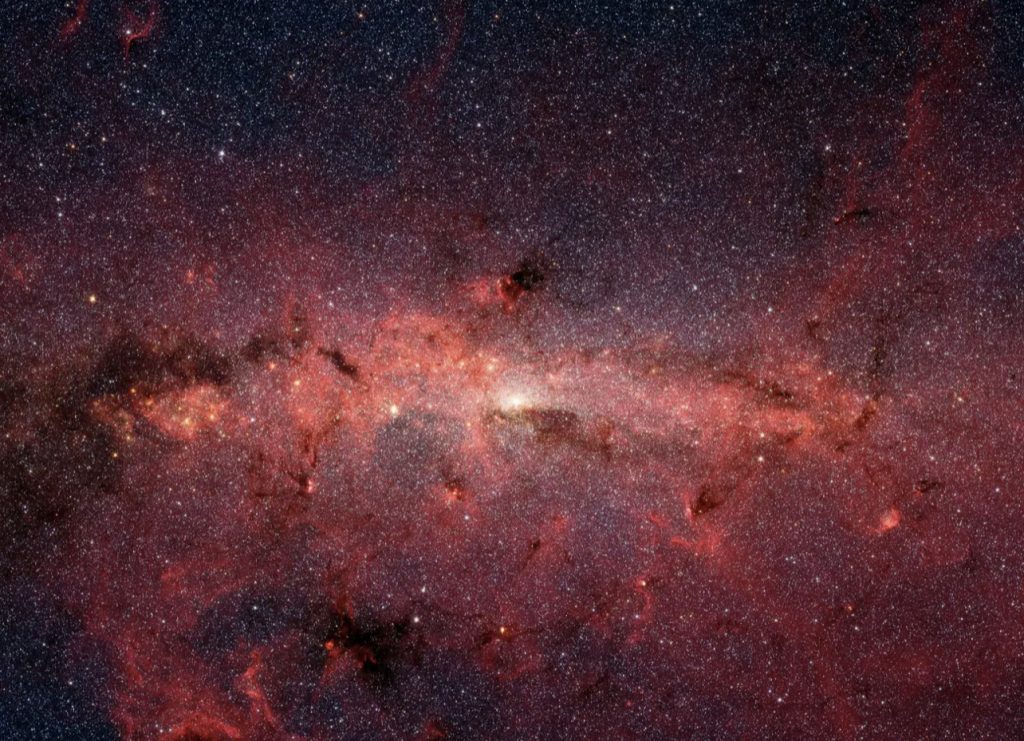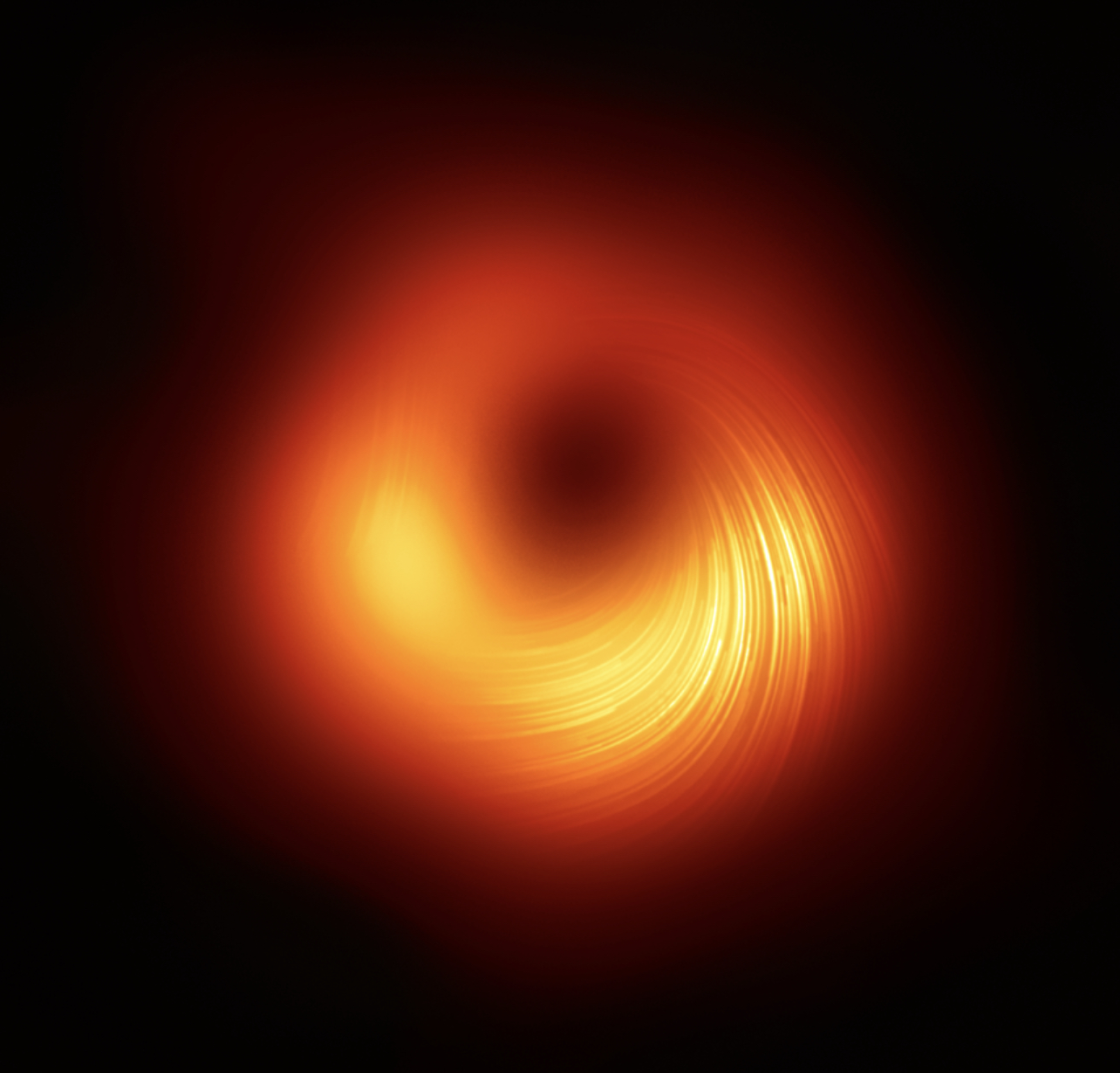An international team of astronomers are working to produce an image of Sagittarius A*, the supermassive black hole at the centre of the Milky Way.
The same team also produced the first image of a black hole – the supermassive galactic nuclei at the centre of the galaxy M87.
Their latest release was a new version of the M87 black hole showing evidence of its rotation and magnetic field.
Astronomers involved in the work said they are now using data gathered over the past half decade using the Event Horizon Telescope to show our own galactic nuclei.
The black hole at the centre of the Milky Way Galaxy – Sagittarius A* – which is 1,000 times closer and 1,000 smaller than M87.

It is very difficult as you have an ‘interstellar scattering’ of stars and light sources between the Earth and the black hole that move at different rates, making it harder to directly image the black hole.
‘The other trickier issue is that the black whole is 1,000 smaller than M87 and 1,000 closer, so on the plane it is about the same size as seen from Earth, but it is also much quicker.’ he told MailOnline.
In the case of the black hole in M87 things change and move on a time scale of days and weeks, whereas the much smaller black hole in our galaxy sees changes on a scale of seconds.
‘What you see is matter reconfiguring itself so quickly that it is like taking a photograph of a fast moving car, so you have to create techniques to interpolate between multiple photographs of the same image.’
They hope to be able to release the first images of Sagittarius A* by the end of this year. They already have the data but have to work to ‘clean up’ the image and make sense of the data in a way that can be visualised.
This is based on a story I wrote for MailOnline.


No responses yet